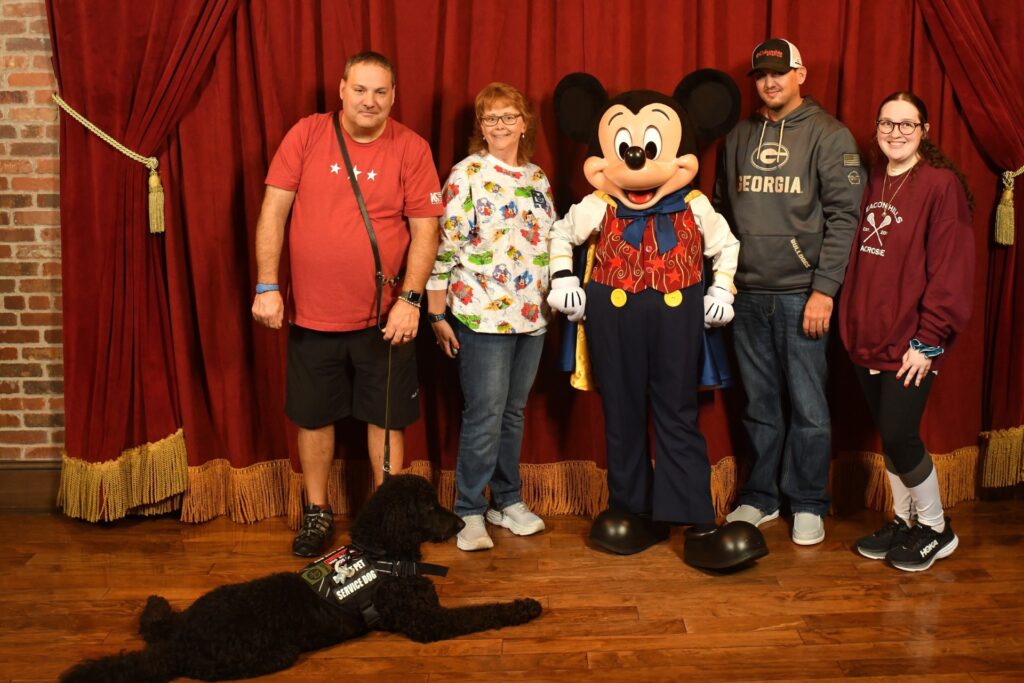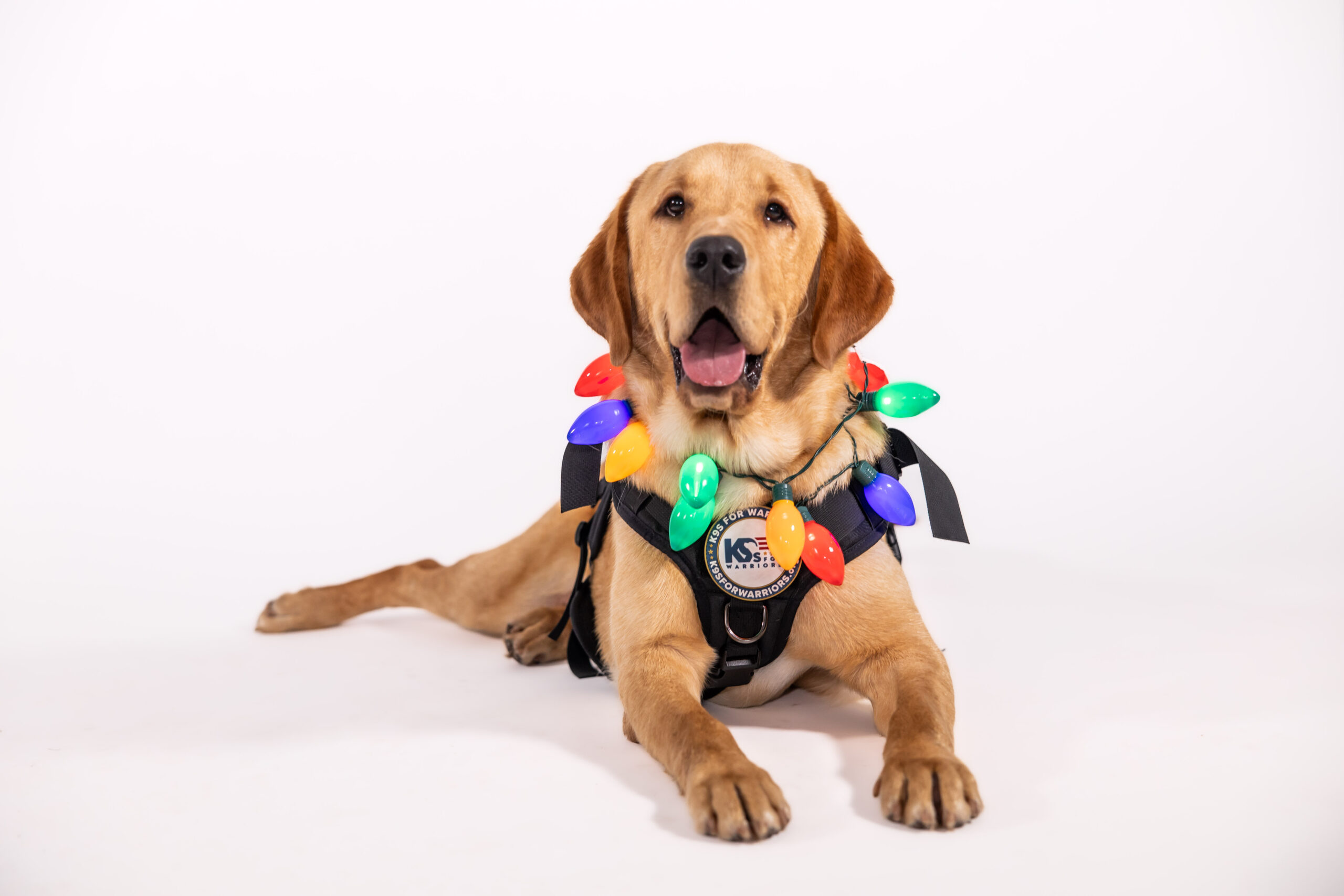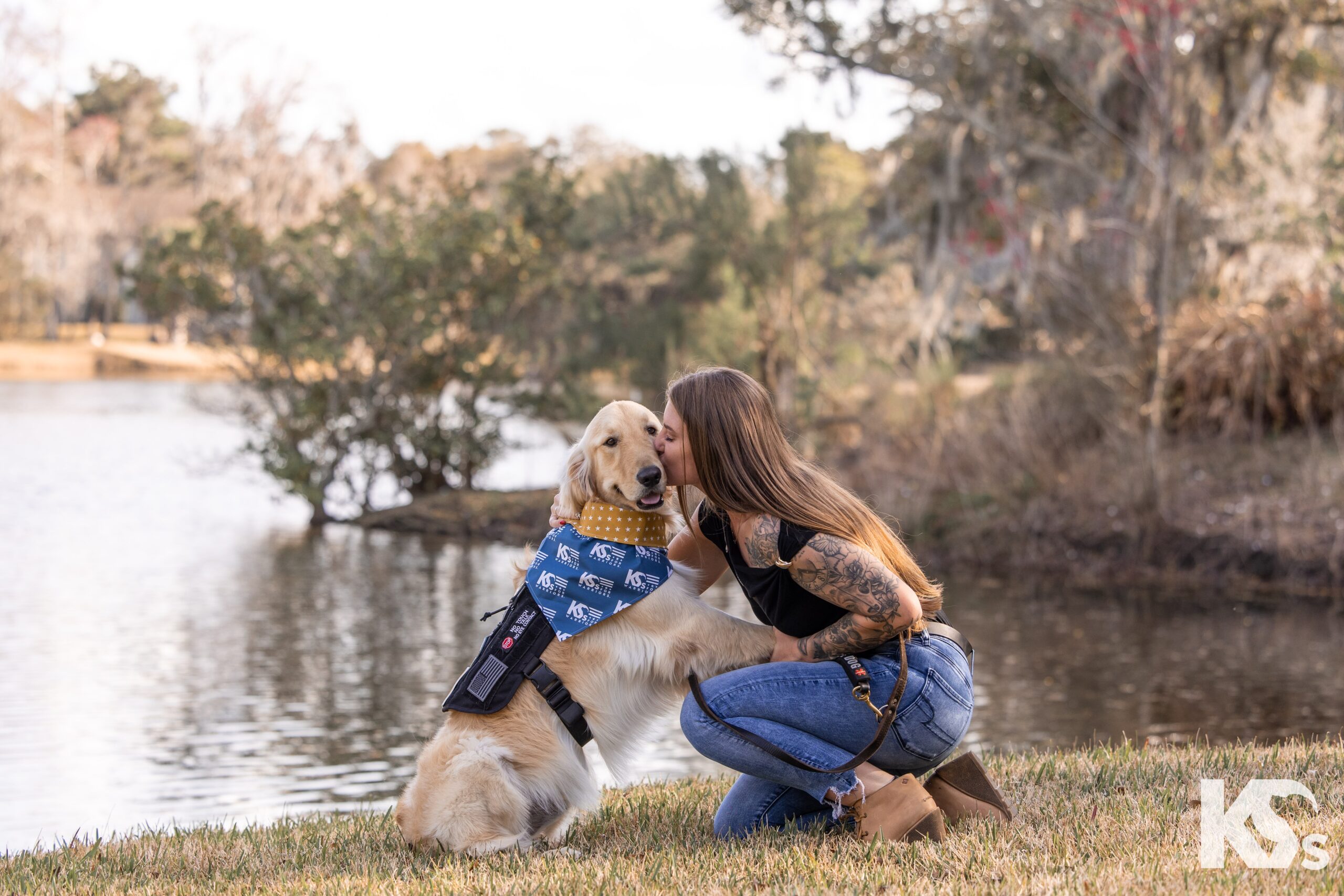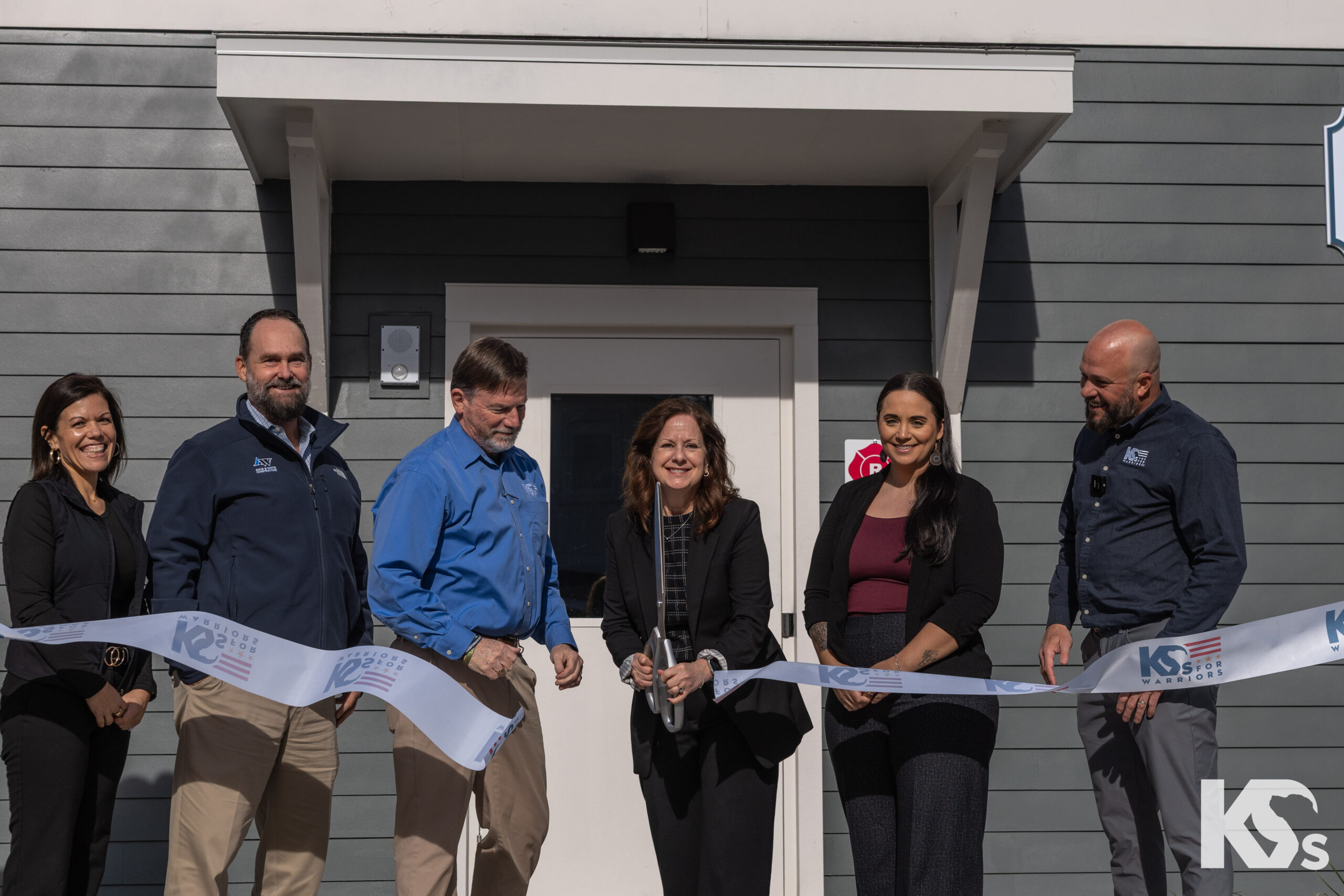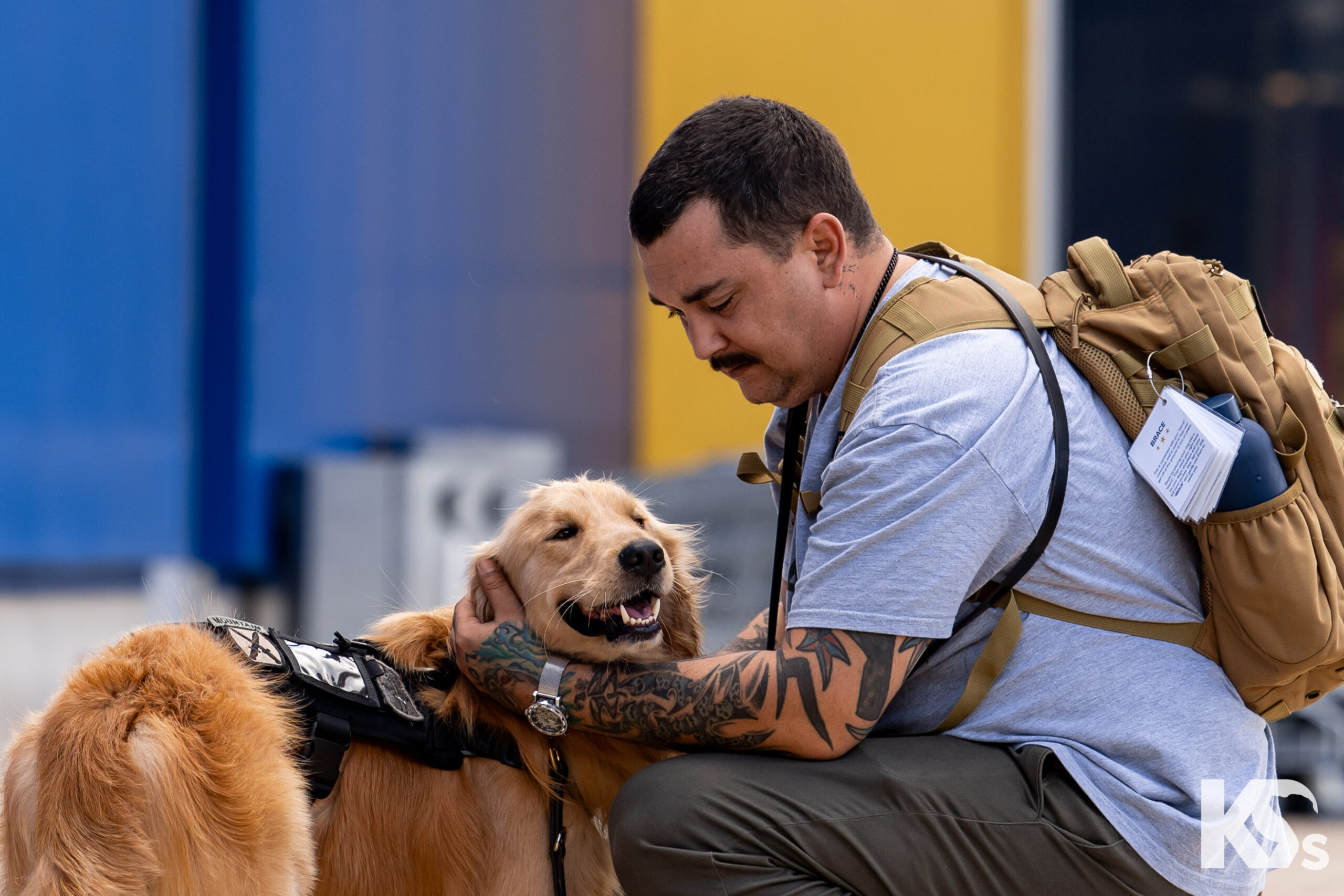It’s known as the most wonderful time of the year, but the holidays can often invoke feelings of anxiety and stress, especially for military Veterans. Holiday traditions often come with a lot of pressure, which can make them less enjoyable for some, especially for those struggling with mental health issues. Alex Field is a licensed clinical social worker with 12 years of experience in the mental health field, especially with patients impacted by trauma. Field works with the Steven A. Cohen Military Family Clinic at Centerstone in partnership with K9s For Warriors to serve Warriors and their advocates during and after training. She explained why the holidays can be a difficult time for some Veterans.
“Holidays can be a period of stress, sadness and loneliness.
Factors that may impact mental health can include being separated from loved ones, grief and loss, pressures of gift-giving, economic hardship, challenging family interactions and survivor’s guilt,” she said. “Veterans with PTSD may feel disconnected from others and feel they can’t share their experiences, thoughts and emotions. Many do this to avoid feeling like a burden.”
Field said there are common warning signs that a Veteran may be struggling, especially during the holidays.
- Appearing sad or depressed or exhibiting loss of interest
- Feeling unexplained guilt/shame/sense of failure
- Rage or anger
- Risky behaviors
- Neglecting personal welfare
- Pulling away from family and/or friends
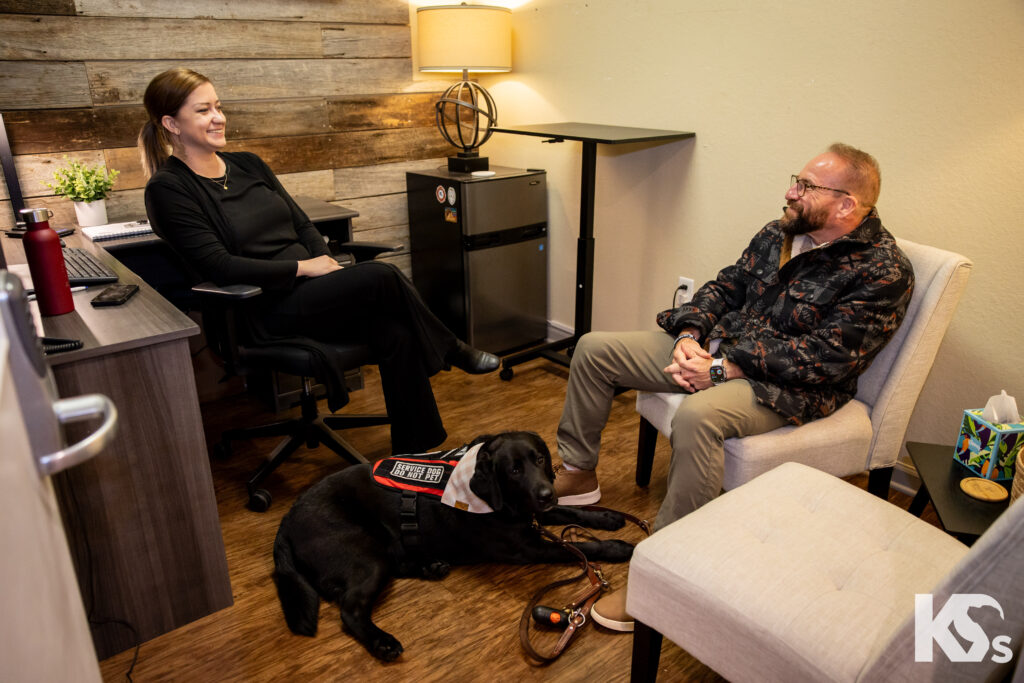
Small gestures can go a long way in the Veteran’s holiday experience.
Often, a listening ear can make the biggest difference. Field suggests paying attention to the Veteran’s emotions and letting them know you are there if they need support.
“Provide an open, safe environment for them to share as they feel comfortable. Open the door for them to discuss what they are experiencing without pressure. Be kind and reassuring,” she said. “Loved ones can engage in active listening and develop a plan for when moments become particularly stressful, sad or lonely. That could include asking what the Veteran needs and what would be most helpful for them, or what has worked in the past.”
Field also recommends showing the Veteran you are actively listening to them. You can do this by eliminating distractions, using verbal and nonverbal communication, asking open-ended questions and reflecting on their answers.
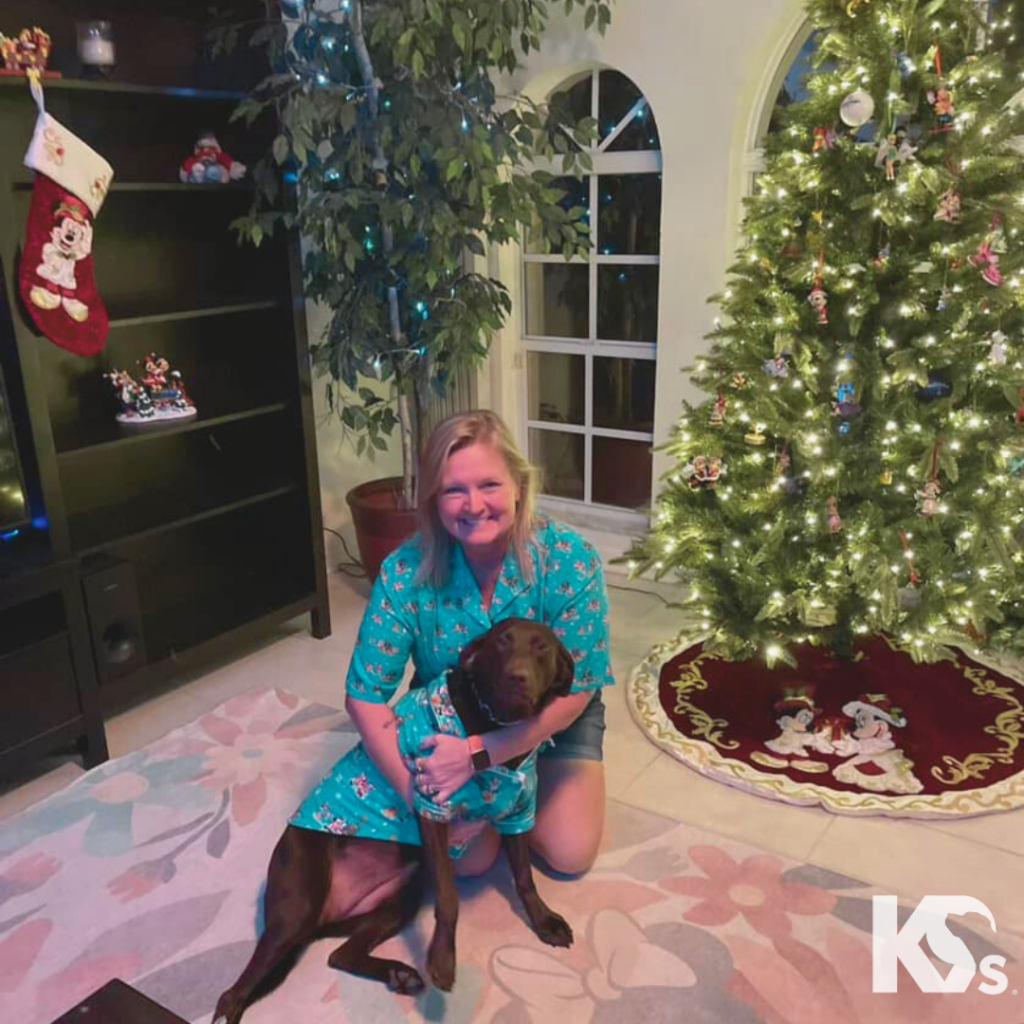
“Strive to understand by being present and listening with an open mind,” said Field. “If conflict does arise, be solution oriented. Focus on the problem, not the person.”
Many Warriors tell us their Service Dog from K9s For Warriors help them feel excited about the holidays again. Navy Veteran Julie has been paired with her Service Dog, Macy, for a year and a half. Last Christmas, she took family photos for the first time since her son was a child (he is now 26!).
“Thanks to Macy, I’m going out to visit more friends and family again this year,” Julie shared.
Many of our Warriors also tell us that their Service Dogs help get them out of their comfort zone. Jon and Douglas graduated in August 2023. Three months later, the Army Veteran went to Disney World with his family.
“Douglas made the crowds more manageable for me,” he said. “It was the best time my family had spent during the holidays in quite some time.”
The Service Dog becomes part of the Warrior’s family.
Army Veteran Tina enjoyed making her Service Dog, Rawly, a part of her favorite traditions last year.
“Having Rawly there to celebrate my favorite holiday traditions with me, like trimming our trees together, gives me a sense of normalcy and personal safety,” she said.
"Spending time outdoors with my Service Dog and being together has been a terrific tonic for my perpetual holiday blues."
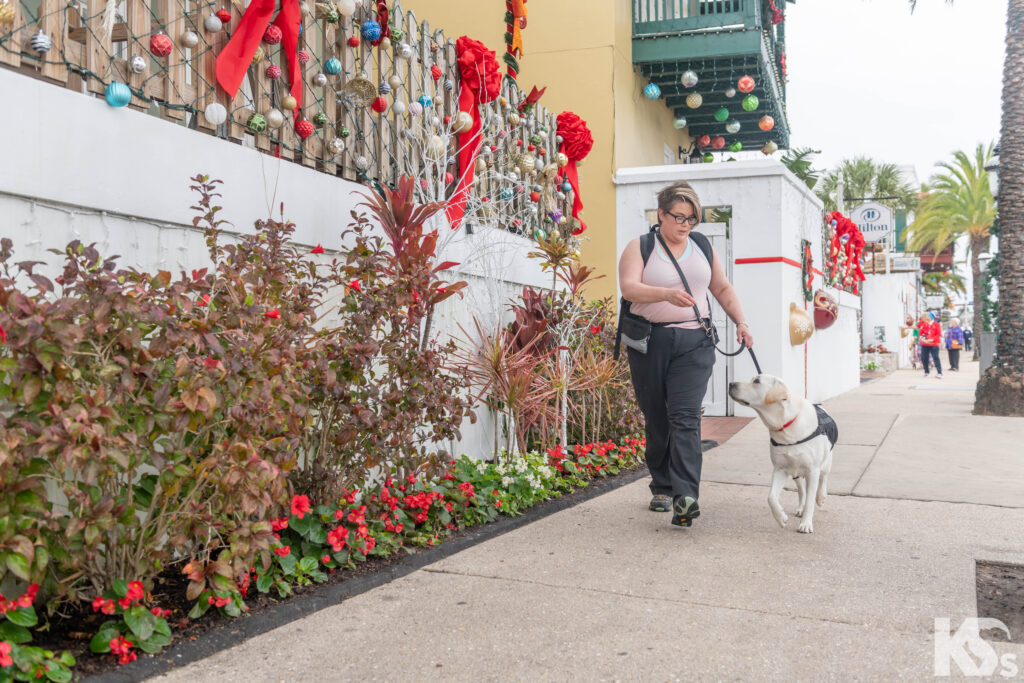
While these Warriors say their Service Dogs made their spirits bright, the holidays can still be a struggle spot for many. The Military Health System says the reintegration after deployment can cause emotional highs and lows. Those symptoms can heighten when navigating relationships with civilian loved ones. Experts say these feelings are extremely normal upon returning home from service.
Here are some tips for reducing stress and anxiety during the holiday season from the Anxiety and Depression Association of America.
- Take the pressure off: There is nothing wrong with keeping the celebrations low-key. If you set high expectations for yourself or others at holiday gatherings, you’re more likely to feel disappointed. Know your boundaries and what you will be comfortable with. Sometimes, things don’t go as planned, and that’s okay!
- Know your concerns: What part of the holidays are worrying you most? Are you thinking about how many people you may have to see? What to talk about at dinner? Remind yourself that although you may feel very uncomfortable, your feelings are normal and valid!
- Communicate with someone you trust: Take the time to share what you’re feeling with a loved one. Talking about what’s on your mind can feel like a weight lifted off your shoulders.
It is also okay to get a professional involved if symptoms persist despite the use of coping strategies and self-care. If you or a family member are in crisis, seek emergency care or dial 988 for the Suicide and Crisis Lifeline. To reach the Veterans Crisis Line, dial 988, then press 1 or text 838255. These services offer 24/7, confidential crisis support.
Warrior well-being is a top priority every time of year at K9s For Warriors. Field’s practice focuses on serving Veterans, active-duty service members, reservists, National Guard members, and their families for individual, couples, group and family therapy. Field is currently preparing to implement new initiatives with Warriors prior to coming on-site for training to best meet their mental health needs.
“I am accessible to the Warriors individually as needed during their time on campus for mental health needs,” said Field. “It’s important that Warriors continue to use their learned coping strategies in addition to the support from their Service Dog.”
